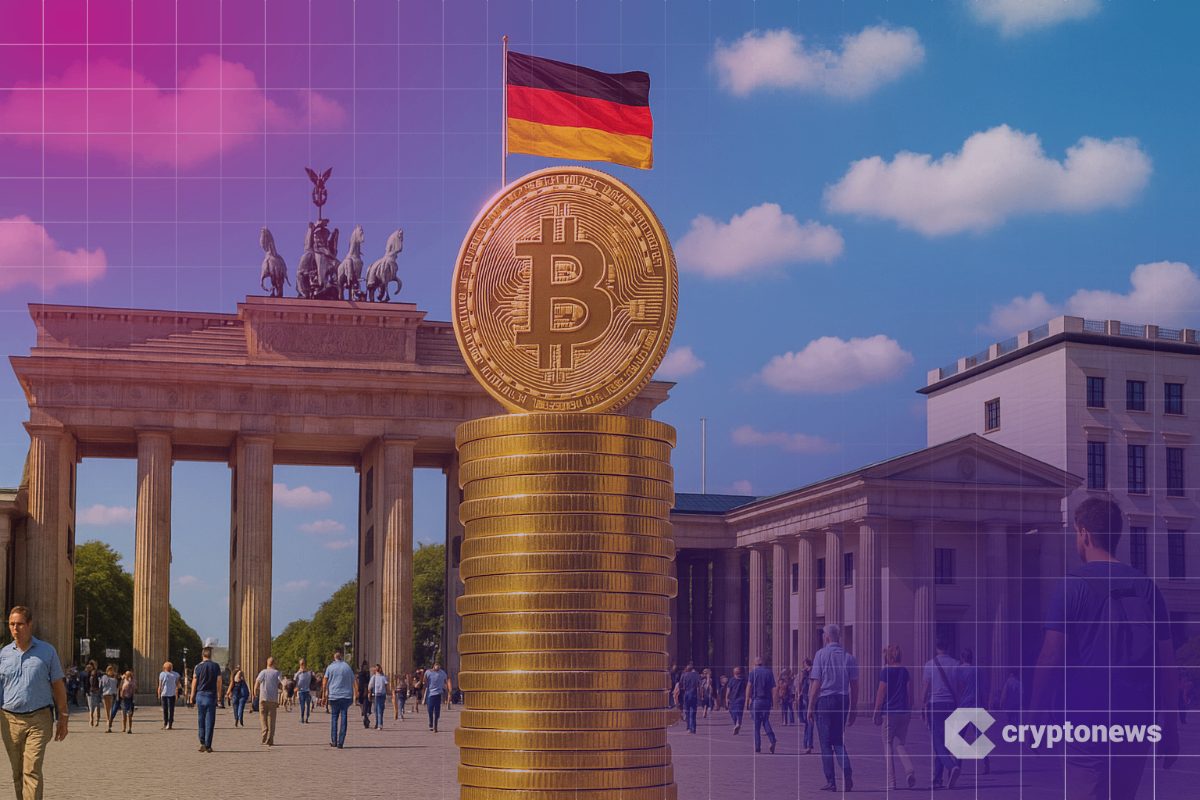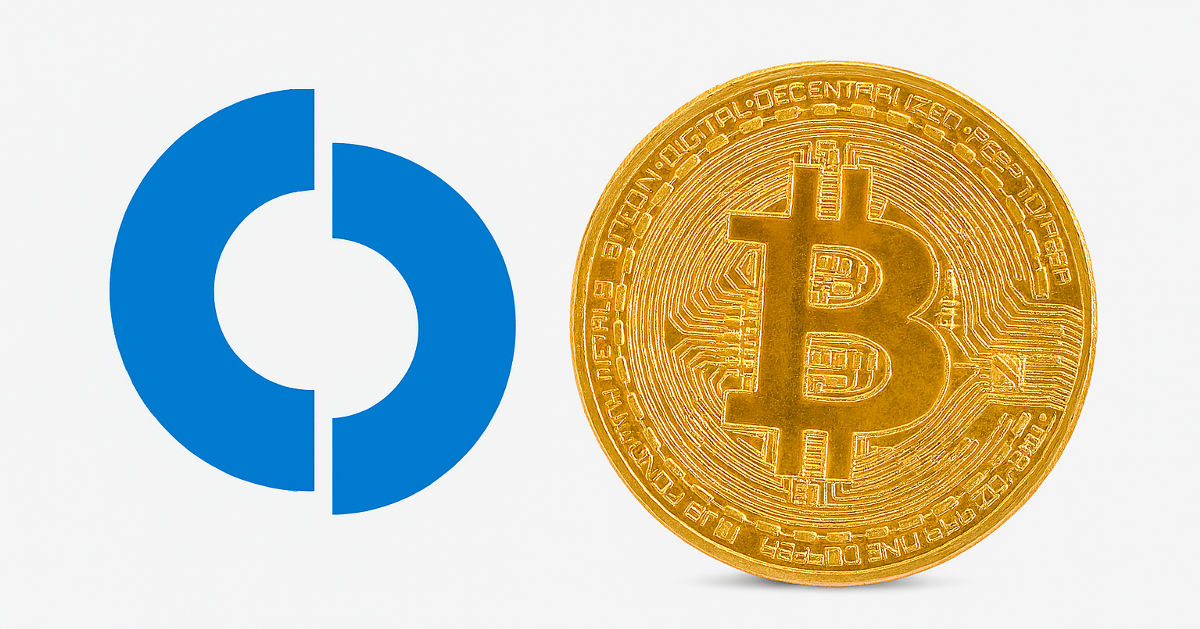Germany Sold 54,000 BTC at $57.9K Last Year – You Won’t Believe How Much They’re Worth Now

Germany made the decision to sell 54,000 Bitcoins (BTC) at $57,900 last year, which became one of the most costly government financial decisions in recent history.
The premature liquidation cost the nation approximately $3.51 billion in missed profits as Bitcoin surged to new all-time highs above $123,000.
The German government netted $3.13 billion from its Bitcoin sales in 2024. Had officials waited until Bitcoin’s recent peak, the same holdings would have generated $6.64 billion.
Bitcoin has gained over 100% since Germany’s average sale price, with daily prices consistently trading above $104,000 throughout late June and July 2025.
Germany’s wallet now contains just 0.0069 BTC worth $839.76, according to Arkham Intelligence.
The country is now among the major Bitcoin-holding governments to completely liquidate its positions, while other nations have adopted strategic accumulation or selective selling approaches.
The missed opportunity has coincided with a global rush toward Bitcoin strategic reserves.
Multiple countries and corporations have announced plans to establish or expand their Bitcoin holdings.
Strategic Sellers Capitalize While Germany Exits
El Salvador’s Bitcoin strategy has generated the most dramatic vindication of the strategic reserve approach.
President Nayib Bukele’s administration holds 6,237 BTC worth over $760 million, nearly tripling from the country’s estimated $42,000 cost basis.
Bukele made Bitcoin legal tender in 2021 and accumulated holdings during market lows.
The president recently mocked U.S. senators who introduced the El Salvador Accountability Act of 2025, which aims to investigate the country’s Bitcoin usage and consider sanctions.
Similarly, compared to the German government, Bhutan has demonstrated superior market timing compared to other sovereign holders.
The Royal Government recently transferred $23.73 million worth of Bitcoin to Binance within hours of Bitcoin reaching new highs above $112,000 on July 10.
The Himalayan kingdom sold 213 BTC during the peak, bringing remaining holdings to 11,711 BTC worth $1.3 billion.
Bhutan has consistently sold during price peaks while maintaining substantial long-term positions, generating superior returns compared to passive holding strategies.
Bhutan’s Bitcoin accumulation centers on sustainable mining operations powered by hydroelectric resources.
The country began mining in April 2019 when prices traded around $5,000, building reserves through energy-efficient operations that account for over 25% of the nation’s GDP.
Global Reserve Movement Gains Momentum
As part of the growing entities’ adoption, Kazakhstan officially announced plans to establish a state crypto reserve, with National Bank Chairman Timur Suleimenov revealing that confiscated criminal assets and state-backed mining operations will serve as primary funding sources.
The Central Asian nation emerged as a mining haven after Chinese operations fled regulatory crackdowns in 2021, briefly controlling over 27% of global Bitcoin mining before scaling back to 4% under new regulations by 2023.
Additionally, in June, Texas became the first U.S. state to establish a Bitcoin reserve fund when Governor Greg Abbott signed Senate Bill 21 into law.
The standalone reserve fund operates separately from the state treasury and is overseen by Texas Comptroller Glenn Hegar.
Similarly, Pakistan announced a government-led Bitcoin strategic reserve at the Bitcoin 2025 conference in Las Vegas.
Bilal bin Saqib, head of the Pakistan Crypto Council, stated that the government will hold Bitcoin permanently without selling.
The announcement marked a reversal from Pakistan’s previous anti-crypto stance. Just two years ago, Pakistan’s finance ministry declared cryptocurrencies illegal.
Alongside government initiatives, corporate adoption has also accelerated.
Norwegian deep-sea mining firm Green Minerals announced plans to raise up to $1.2 billion for Bitcoin reserves as part of a broader blockchain strategy.
In fact, just today, Strategy announced it had acquired 4,225 BTC for approximately $472.5 million, at approximately $111,827 per bitcoin, bringing total holdings to 601,550 $BTC, acquired for approximately $42.87 billion.
Current government Bitcoin holdings total 529,705 BTC worth over $64 billion across nine countries.
The United States leads with 207,189 BTC valued at $25.18 billion, followed by China with 194,000 BTC worth $23.58 billion.
The post Germany Sold 54,000 BTC at $57.9K Last Year – You Won’t Believe How Much They’re Worth Now appeared first on Cryptonews.
Read More

Big Bitcoin Foe US Giant Vanguard May Actually Be a BTC Fan – Data Revealed
Germany Sold 54,000 BTC at $57.9K Last Year – You Won’t Believe How Much They’re Worth Now

Germany made the decision to sell 54,000 Bitcoins (BTC) at $57,900 last year, which became one of the most costly government financial decisions in recent history.
The premature liquidation cost the nation approximately $3.51 billion in missed profits as Bitcoin surged to new all-time highs above $123,000.
The German government netted $3.13 billion from its Bitcoin sales in 2024. Had officials waited until Bitcoin’s recent peak, the same holdings would have generated $6.64 billion.
Bitcoin has gained over 100% since Germany’s average sale price, with daily prices consistently trading above $104,000 throughout late June and July 2025.
Germany’s wallet now contains just 0.0069 BTC worth $839.76, according to Arkham Intelligence.
The country is now among the major Bitcoin-holding governments to completely liquidate its positions, while other nations have adopted strategic accumulation or selective selling approaches.
The missed opportunity has coincided with a global rush toward Bitcoin strategic reserves.
Multiple countries and corporations have announced plans to establish or expand their Bitcoin holdings.
Strategic Sellers Capitalize While Germany Exits
El Salvador’s Bitcoin strategy has generated the most dramatic vindication of the strategic reserve approach.
President Nayib Bukele’s administration holds 6,237 BTC worth over $760 million, nearly tripling from the country’s estimated $42,000 cost basis.
Bukele made Bitcoin legal tender in 2021 and accumulated holdings during market lows.
The president recently mocked U.S. senators who introduced the El Salvador Accountability Act of 2025, which aims to investigate the country’s Bitcoin usage and consider sanctions.
Similarly, compared to the German government, Bhutan has demonstrated superior market timing compared to other sovereign holders.
The Royal Government recently transferred $23.73 million worth of Bitcoin to Binance within hours of Bitcoin reaching new highs above $112,000 on July 10.
The Himalayan kingdom sold 213 BTC during the peak, bringing remaining holdings to 11,711 BTC worth $1.3 billion.
Bhutan has consistently sold during price peaks while maintaining substantial long-term positions, generating superior returns compared to passive holding strategies.
Bhutan’s Bitcoin accumulation centers on sustainable mining operations powered by hydroelectric resources.
The country began mining in April 2019 when prices traded around $5,000, building reserves through energy-efficient operations that account for over 25% of the nation’s GDP.
Global Reserve Movement Gains Momentum
As part of the growing entities’ adoption, Kazakhstan officially announced plans to establish a state crypto reserve, with National Bank Chairman Timur Suleimenov revealing that confiscated criminal assets and state-backed mining operations will serve as primary funding sources.
The Central Asian nation emerged as a mining haven after Chinese operations fled regulatory crackdowns in 2021, briefly controlling over 27% of global Bitcoin mining before scaling back to 4% under new regulations by 2023.
Additionally, in June, Texas became the first U.S. state to establish a Bitcoin reserve fund when Governor Greg Abbott signed Senate Bill 21 into law.
The standalone reserve fund operates separately from the state treasury and is overseen by Texas Comptroller Glenn Hegar.
Similarly, Pakistan announced a government-led Bitcoin strategic reserve at the Bitcoin 2025 conference in Las Vegas.
Bilal bin Saqib, head of the Pakistan Crypto Council, stated that the government will hold Bitcoin permanently without selling.
The announcement marked a reversal from Pakistan’s previous anti-crypto stance. Just two years ago, Pakistan’s finance ministry declared cryptocurrencies illegal.
Alongside government initiatives, corporate adoption has also accelerated.
Norwegian deep-sea mining firm Green Minerals announced plans to raise up to $1.2 billion for Bitcoin reserves as part of a broader blockchain strategy.
In fact, just today, Strategy announced it had acquired 4,225 BTC for approximately $472.5 million, at approximately $111,827 per bitcoin, bringing total holdings to 601,550 $BTC, acquired for approximately $42.87 billion.
Current government Bitcoin holdings total 529,705 BTC worth over $64 billion across nine countries.
The United States leads with 207,189 BTC valued at $25.18 billion, followed by China with 194,000 BTC worth $23.58 billion.
The post Germany Sold 54,000 BTC at $57.9K Last Year – You Won’t Believe How Much They’re Worth Now appeared first on Cryptonews.
Read More

 Bhutan government moves $23.73M Bitcoin to Binance perfectly timing
Bhutan government moves $23.73M Bitcoin to Binance perfectly timing  Texas has officially joined the small but growing list of U.S. states moving toward on-chain finance, passing a bill that protects Bitcoin reserves.
Texas has officially joined the small but growing list of U.S. states moving toward on-chain finance, passing a bill that protects Bitcoin reserves.